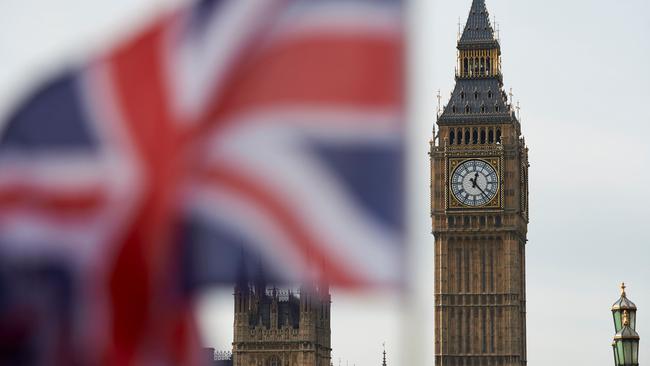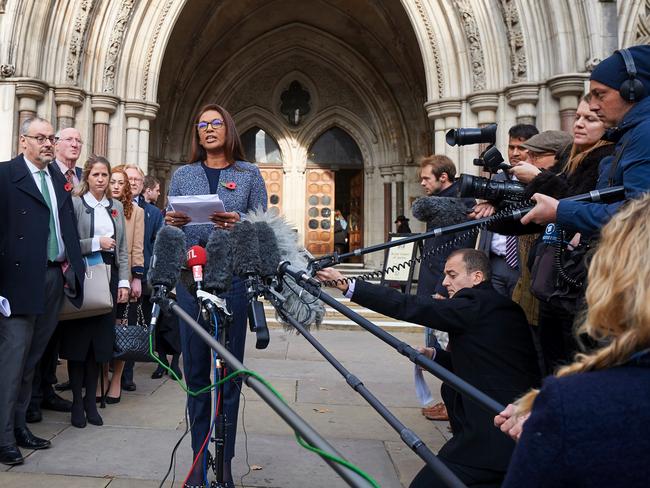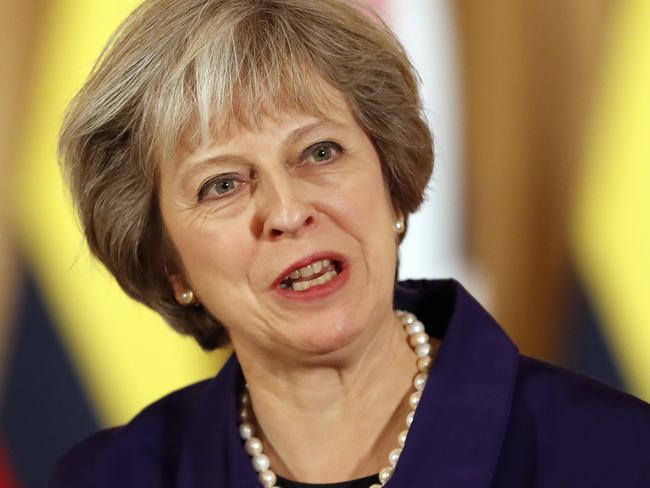Brexit bombshell explained: Shock ruling puts everything in doubt
THE shock decision is likely to delay Britain leaving the EU, and if it goes ahead, it may look totally different to what was expected.

A SHOCK ruling that the UK government needs parliamentary approval to start ‘Brexit’ has thrown everything we thought we knew about the issue into doubt.
The British exit from the European Union could be cancelled, massively delayed, or look completely different to anything we expected, with the UK even facing a possible early election.
We’re almost back to where we were five months ago, with the Brexit debate exploding in Westminster and the British press. Certainty is perhaps the one thing that’s off the table, with any crisis or change of government over the next few years carrying the potential to halt the Brexit in its tracks.
In the meantime, Australia could forge a closer relationship with other European countries, where the bond is stronger and more stable than it has been in decades.
We could be waving goodbye to BBC documentaries, crumpets and roasts and turning instead to Belgian fries, German beers and Dutch cheese.
This is what you need to know about the latest twist for Brexit Britain.

BREXIT VOTE WASN’T BINDING
Prime Minister Theresa May had planned to trigger Article 50 and begin a two-year process of unwinding Britain from the EU by the end of March. But now a group of self-funded private citizens have won a High Court ruling that the referendum was advisory, not binding, and Brexit needs the approval of the British Parliament.
This is because of parliamentary sovereignty, an important part of the UK constitution that makes Parliament the country’s supreme legal authority above the government, with the ability to create or end any law.
It was this sovereignty that formed an important tenet of the Leave campaign.
The government will appeal the decision and the appeal is expected to be resolved in the Supreme Court by December in a fast-tracked judgment.
DERAILMENT AT ANY TIME
If the Supreme Court agrees with the High Court ruling, the decision on whether to trigger the Brexit will go to Parliament.
This would be a real nightmare for Ms May, with many MPs even in her Conservative party still opposed to leaving the EU.
The vote would then go to the Upper House, where “it is very likely the House of Lords will at least block ratification,” according to Philomena Murray, an expert in EU politics from the University of Melbourne’s school of social and political sciences.
This would be temporary, but “negotiations could be three or four years” rather than the expected two, warns Professor Murray.
And it gets wilder. “People are saying it could stop at any time while Britain remains in the EU,” Prof Murray told news.com.au. “If there’s a major crisis or a change of government, they could say we need to remain. A major catastrophe, conflict or war, all of those could stop the process.”
Then there are the separate problems of Scotland and Northern Ireland to throw into the mix.
“Scotland is calling for a new election and saying, ‘we want a different kind of deal,’” explains Prof Murray. “Northern Ireland’s situation is different, the First Minister is for and other parties are not. The UK is not united on this.”

A DIFFERENT KIND OF BREXIT
Nick Rowley, Adjunct Professor from the University’s Sydney Democracy Network, sees two probable alternatives for Ms May. “Rather than negotiating an uncertain course through a British Parliament where she knows the majority don’t want to leave the EU, she would be very attracted to going to a general election,” he told news.com.au.
In the absence of a real alternative thanks to Labour leader Jeremy Corbyn’s unpopularity, Ms May could return with a new government and a mandate from the British people to help her get the hard Brexit she wants through Parliament.
And yes, another referendum could still happen. The second likely outcome Prof Rowley foresees is a vote on the specifics of the deal.
“Things have occurred as a result of the referendum,” he said. “The pound has lost about 40 per cent of its value, which makes it much more expensive to go to the Costa del Sol. There are real questions about the future of Scotland in the UK. We know the price of Marmite has gone up 12 per cent. There are real implications for British people.”
The most important are perhaps freedom of movement, the open market and selling agricultural produce and products made in Britain to the EU.
“It’s possible, maybe even probable, the Prime Minister would have to go back to the country on it,” said Prof Rowley.
If Brexit goes ahead — and it’s still a big “if” — the British Parliament or the public could insist on overriding Ms May’s plans for a “hard” exit and insist upon a “softer” deal whereby the UK remains part of the European single market and has free movement of goods, services, capital and people.
Norway has a similar arrangement in the EU — and paid a huge amount for the privilege.
The other options would be one of limited movement, or a free-trade agreement similar to the ones the EU has with Korea and Canada.

WHAT IT MEANS FOR AUSTRALIA
When the UK joined the EU in 1973, Australia’s preferential position was disrupted and it started to look to Asia-Pacific for trading opportunities.
This time, it may be continental Europe that replaces Britain in our hearts.
Australia is about to negotiate a free-trade agreement with the 28 countries in the EU. If the UK leaves, a separate agreement will be needed, but negotiations over that cannot begin until Britain has made its exit.
“Relations between Australia and the EU have never been better,” said Prof Murray. “The framework agreement has gone through the legislative stages. It covers all major policies ... trade, services and investment.
“We have a fantastic trade relationship with Germany, a good relationship with France and a very good trade relationship with the Netherlands.”
Our relationship with the UK, on the other hand, has a big question mark over it.
CHAOS IN THE DISUNITED KINGDOM
Meanwhile in the UK, the new ruling is already throwing a shaky society into disarray once more.
Gina Miller, one of the individuals who took the Brexit decision to the High Court, has been inundated with hate mail and Leave co-chairman Richard Tice declared that “17.4 million people will be furious” at the “disgraceful” decision.
“Our democracy is being damaged by an elite band of people in the legal system,” he added.
But Prof Rowley says those unhappy with the High Court’s conclusion are “questioning the rules because they don’t like the decision.”
With more fuel to the fire, many expect renewed protests and even violence. The UK has seen a huge increase in racially motivated attacks following the Brexit vote, with a Polish man killed and others injured.
In a tense environment without stable leadership, it feels as though anything could happen.
The value of the British pound rose after the High Court’s announcement yesterday, suggesting the markets believe a Brexit can still be avoided.
More probably, the UK faces many more years of chaos, confusion and heartache, while the rest of the world focuses on its own agenda.



